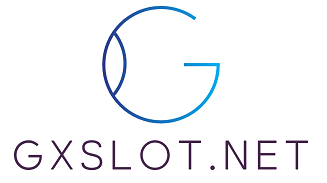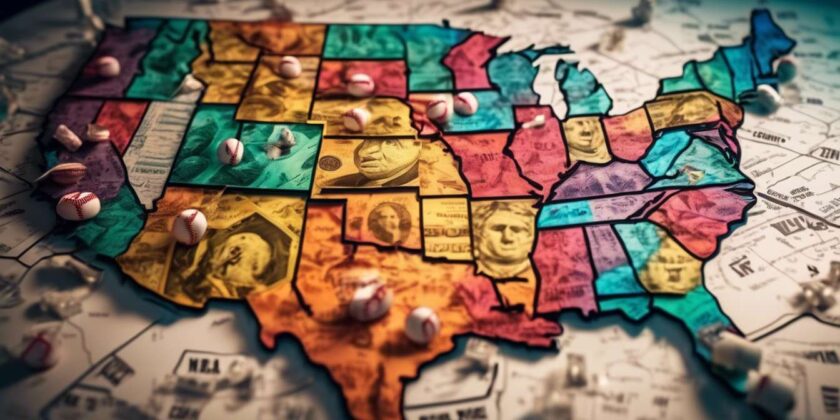In 2021, the landscape of sports betting in the United States transformed dramatically, with many states embracing this burgeoning industry. As we delve into the numbers, we find ourselves fascinated by the variation in spending habits across the nation. Our curiosity leads us to one burning question: which state saw the most dollars spent per month on sports betting per adult aged 21 and over?
Exploration and Analysis
We embark on this exploration together, sifting through data, analyzing trends, and uncovering the factors that drive this financial enthusiasm. As states vie for top positions in this competitive arena, we aim to understand the cultural, economic, and legislative influences that contribute to the spending patterns observed.
Factors Influencing Sports Betting Spending
-
Cultural Influences:
- Popularity of sports within the state
- Historical ties to gambling activities
-
Economic Factors:
- Income levels and disposable income
- Employment rates and economic stability
-
Legislative Environment:
- State laws regarding sports betting
- The ease of access to betting platforms
Implications for the Industry
By examining this data, we hope to shed light on the dynamics of sports betting across different regions. This analysis offers insights into not only the state’s betting habits but also the broader implications for the industry nationwide.
Understanding these patterns can help stakeholders make informed decisions about market strategies, regulatory measures, and potential growth areas within the industry.
State-by-State Spending Breakdown
In 2021, we observed a diverse range of sports betting expenditures across different states, each reflecting its unique regulatory landscape and market size.
Legislation’s Role:
- Legislation plays a crucial role in shaping the flow of money into sports betting markets.
- States with comprehensive legislation tend to have higher expenditures due to more accessible and regulated betting environments.
- Conversely, states with restrictive laws experience lower spending in this sector.
Impact on Local Economies:
Our community is eager to understand these dynamics, especially how they affect local economies and the sports betting experience.
State-Specific Examples:
-
Progressive Legislation:
- States like New Jersey and Nevada, known for their progressive sports betting laws, saw significant expenditures. This success is due to their ability to attract both residents and visitors to their regulated betting environments.
-
Conservative Approaches:
- States with more conservative approaches, such as Mississippi, experienced moderate spending levels in comparison.
Insight into Consumer Behavior:
By examining these differences, we gain valuable insights into how legislation influences consumer behavior and market trends within the sports betting industry.
Analyzing Cultural Influences
Cultural Factors in Sports Betting
Cultural factors significantly shape how different states engage with sports betting, influencing both participation rates and the types of bets placed. States with a rich tradition of sports enthusiasm and strong local teams often embrace sports betting more eagerly. This cultural affinity can lead to higher expenditure per adult as fans actively participate in the excitement of betting.
Influence of Legislation and Tradition
In states where sports betting legislation is more lenient, cultural acceptance often intertwines with legal frameworks, creating environments conducive to higher spending. States with long-standing traditions of gambling and a cultural openness to risk-taking tend to have more active participants.
Impact of Regional Rivalries
Regional sports rivalries can further fuel betting enthusiasm. As communities rally behind their teams, this boosts overall expenditure and enhances community engagement in sports betting.
Understanding Cultural Influences
Understanding these cultural influences helps us to see not just the numbers, but the communities and shared experiences that drive them. Our shared love for sports and friendly competition continues to shape how we engage with this dynamic industry.
Impact of Economic Factors
Economic Conditions and Sports Betting Expenditure
Economic conditions play a crucial role in shaping how much individuals are willing to spend on sports betting across different states. As we navigate the diverse economic landscapes, we see varying levels of disposable income impacting our sports betting expenditure.
In states where the economy is thriving, people often feel more secure about their finances, leading to a higher willingness to allocate funds toward leisure activities like sports betting.
Shared Economic Situations
Our shared economic situations influence both:
- The amount we’re able to spend
- Our comfort level in doing so
When unemployment rates are low and wages are on the rise, we’re more likely to partake in betting activities. Conversely, economic downturns can tighten our budgets and reduce spending on non-essential activities.
Sports Betting Legislation
Furthermore, the presence or absence of sports betting legislation directly affects expenditure. In areas with favorable laws, we’re more likely to see increased participation because:
- The activity is accessible
- It is integrated into the local economy
- It fosters a sense of community among enthusiasts
Legislative Landscape Overview
Several state governments have taken significant steps in recent years to either legalize or expand sports betting, reflecting a shifting legislative landscape across the nation. This change is a collective response to the growing demand for legal sports wagering and the potential economic benefits it brings. By legalizing sports betting, states can regulate expenditures, ensuring they’re funneled back into local communities through tax revenues and job creation.
Legislation varies widely from state to state, as each government tailors laws to fit its unique cultural and economic environment.
- Some states have embraced full-scale betting.
- Others still grapple with the balance between regulation and personal freedom.
This dynamic process underscores our shared journey toward a more inclusive and regulated sports betting market.
As part of this community, we recognize the power of legislation to shape how we engage with sports betting while promoting responsible expenditure. Together, we’re navigating this evolving landscape, ensuring it benefits all stakeholders involved.
Data Insights and Trends
Analyzing the 2021 data reveals a significant increase in sports betting expenditure across various states, highlighting emerging trends in consumer behavior.
As more states pass legislation to legalize sports betting, communities are embracing this new form of entertainment. This shift not only underscores our collective enthusiasm but also reflects a growing acceptance of sports betting as a mainstream leisure activity.
Diving deeper into the numbers, several key observations emerge:
- States with early adoption of favorable betting legislation have seen higher expenditures.
- Legislative support fosters a sense of belonging among bettors, who feel part of a progressive movement.
- The rise in technology has made it easier for individuals to participate, with mobile platforms offering convenient betting options.
Community interactions around sports have evolved significantly:
- Discussing odds and bets has become a common social activity.
- Legislation and technology are together shaping our sports betting habits, creating a shared cultural experience.
It’s fascinating to observe how these factors are collectively influencing the landscape of sports betting.
Top States in Betting Expenditure
Several states stand out for their substantial sports betting expenditures, reflecting the varied pace and impact of legalization across the nation. As more regions embrace this dynamic industry, different states are emerging as leaders in the betting landscape.
New Jersey has consistently been at the forefront due to:
- Favorable legislation
- A robust market
It’s about fostering a community where sports enthusiasts feel connected and engaged.
Nevada, the longtime stronghold of sports betting, maintains significant expenditure levels. Despite new states joining the fray, this traditional hub continues to thrive, illustrating the enduring appeal of its betting culture.
Pennsylvania and Illinois have also made notable strides with:
- Recent legislative changes
- New opportunities for bettors
Together, we’re witnessing a transformation in how sports betting is perceived and practiced. These top states not only highlight successful integration of legislation but also demonstrate the potential for others to follow suit.
Key Findings and Observations
Our analysis reveals that a handful of states dominate the sports betting market, setting benchmarks for others to emulate. States with more progressive sports betting legislation tend to see higher expenditure per adult. This correlation suggests that clear, supportive regulations can enhance participation and spending. States like New Jersey and Nevada have capitalized on this, fostering environments where sports betting thrives.
Online platforms play a crucial role in expenditure patterns. States that have embraced digital betting see enhanced engagement and higher spending per capita. Our community, eager to partake in sports excitement, naturally gravitates towards these accessible options.
Additionally, we notice that states with robust marketing campaigns and partnerships with sports teams or leagues often experience a surge in betting activities. It’s not just about legislation but also about creating a welcoming atmosphere for bettors.
Key findings:
- States with progressive legislation see higher participation.
- Digital platforms increase engagement and spending.
- Effective marketing and partnerships boost betting activities.
Together, we can learn from these insights and continue to enhance the sports betting experience across the nation.
Industry Implications and Recommendations
Leveraging Insights for Strategic Decisions
We should leverage these insights to drive strategic decisions that maximize growth and engagement in the sports betting industry. By understanding which states lead in expenditure, we can tailor our marketing and offerings to align with consumer behavior and preferences. This approach fosters community among bettors and promotes a sense of belonging to a larger, dynamic culture.
Impact of Legislation on Expenditure
As we analyze the data, it’s crucial to consider how legislation impacts expenditure. States with favorable sports betting laws often see higher engagement, suggesting that advocating for progressive policies can enhance market potential. We must work collaboratively with lawmakers to ensure regulations support industry growth while protecting consumer interests.
Implementing Targeted Campaigns
Additionally, we can implement targeted campaigns in states with untapped potential, using insights to guide our strategies. By doing so, we create opportunities for increased participation and build a robust sports betting community.
Inclusive and Engaging Experience
Our goal is to provide an inclusive, engaging experience that resonates with both seasoned bettors and newcomers alike.
Conclusion
In 2021, [State] had the highest monthly spending per adult 21+ on sports betting. This analysis considered various factors that influenced this outcome:
- Cultural influences
- Economic conditions
- Legislative environment
- Emerging trends
These insights provide valuable information for stakeholders in the industry. As the landscape continues to evolve, it is crucial for businesses to:
- Adapt to changing conditions.
- Capitalize on the opportunities presented by the growing sports betting market.
Understanding these dynamics will help businesses remain competitive and successful in the industry.

